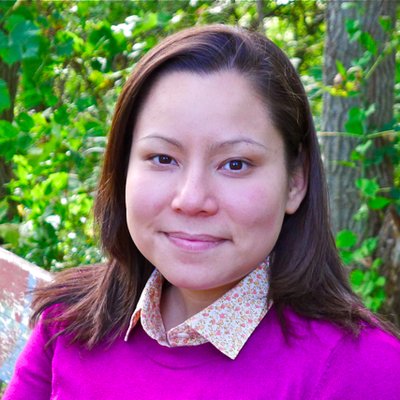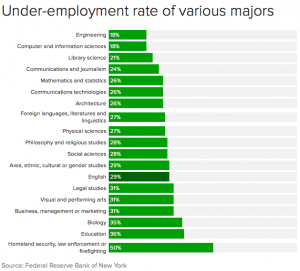
On the afternoon of Monday, October 28th, Siena’s School of Liberal Arts hosted its annual Faculty Research Symposium. The event serves as a celebration of faculty members’ accomplishments post their return from sabbatical. Sharing one of her stories, “Housekeeping”, from a collection of short stories she recently completed, titled “Lost or Damaged”, was Associate Professor of English, Karin Lin-Greenburg
Before sharing her work with the audience, Professor Lin-Greenburg provided background on how her surroundings have influenced her writing. She explained that, in her recent collection, all of the short stories take place in the Capital Region as she has lived here since she began teaching at Siena in 2012. “One of the things that has been great for me with my job at Siena is that is has allowed me to settle down in one place and to use that place as the setting for my stories” she expressed.
Besides geographically, the stories in her collection are connected through “acts of unkindness”, as Professor Lin-Greenburg put it, and focus often on conflicts between women. “In the stories, I try to show the motivations for the characters’ actions” she stated in discussing how she hopes listeners can perceive problematic characters as sometimes sympathetic or rounded. The stories in the collection combine lost or damaged characters (hence the title) with a sense of humor to better understand the heavy topics.
I won’t give any spoilers, but once Professor Lin-Greenburg began reading “Housekeeping”, it was clear to see that the main character was a perfect example of the noted “problematic-yet-sympathetic” character. The story focuses on two sisters living in upstate New York whose modest lives get turned upside down after the suicide of a celebrity in their small town. The younger sister is extremely bright but tends to also be pessimistic and critical of her legal guardian/ older sister. The older sister continuously sacrifices her own wants and needs to meet those of her little sister.
Professor Lin-Greenburg decided to share “Housekeeping” to read not only because it was the first story she wrote while on sabbatical, but also because it was recently accepted by The Southern Review. The literary journal has been a favorite of Professor Lin-Greenburg’s for over a decade and after hearing many “no”’s from them in the past, she was excited to finally hear a “yes”.
Once Professor Lin-Greenburg had finished reading “Housekeeping”, she was met with the applause of the audience. After attendees had their apple cider and cider donuts (perfect for the story’s upstate NY setting) on their way out, the Faculty Research Symposium came to an end. If you are interested in other upcoming SOLA events, be sure to check out this week’s Greyfriar Living Literature Series featuring fiction author Jaimee Wriston Colbert. Visit our Facebook page, @sienalibarts, for more info!

